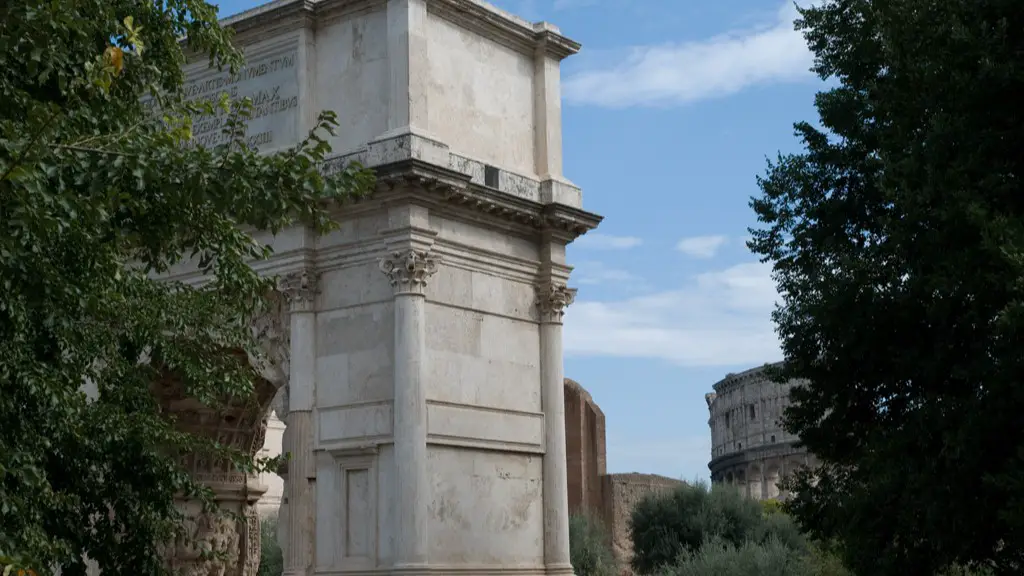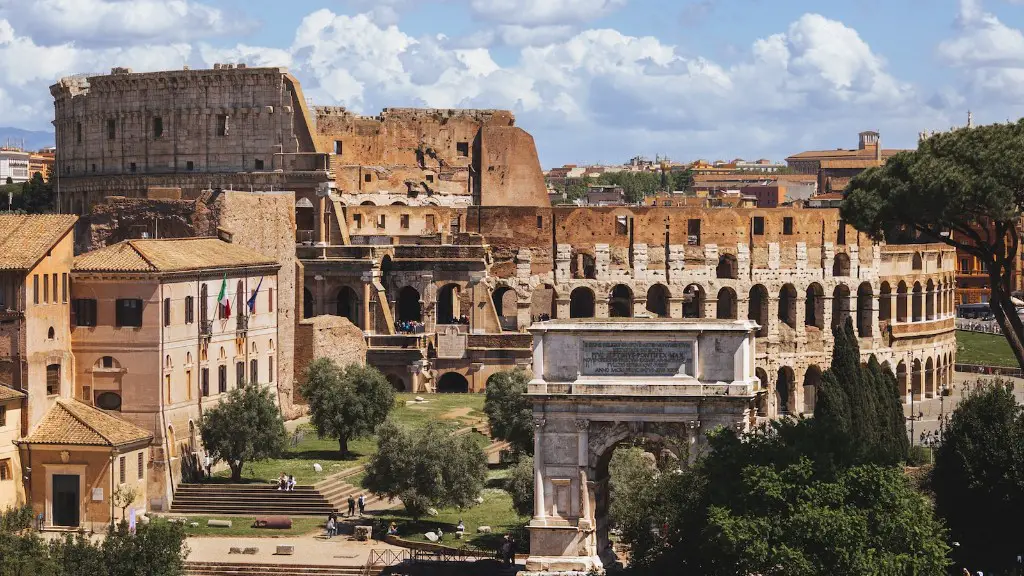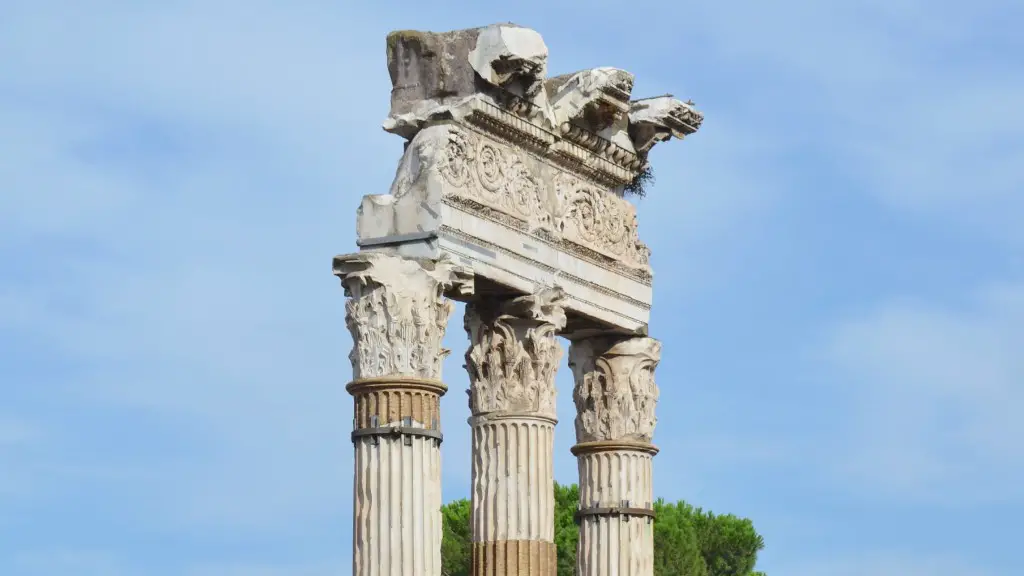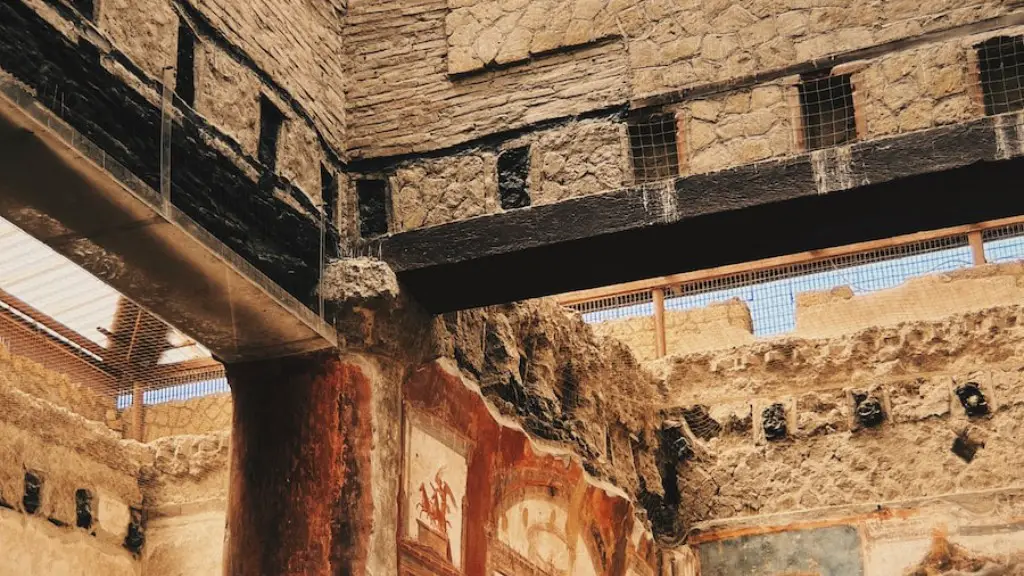The Founding of Ancient Rome
As one of the world’s most influential ancient civilizations, the origin of Rome is a subject of frequent conversations and debates. According to the ancient texts and sources, the city of Rome was founded in the 8th century by brothers Romulus and Remus. They were the sons of Mars, the god of war, and Rhea Silvia, a priestess of Vestal Virgins. The twins were abandoned as children and left in the river Tiber near a place called Palatium. Here, a she-wolf found them and nursed them until they were rescued by a shepherd.
The story of Romulus and Remus reflects Rome’s legendary history and its tenacity against all odds. It is also thought to be an accurate reflection of what happened during the founding of the city of Rome. Ancient sources tell us that the brothers agreed to build a new city, but when it came time to name it each brother wanted to be regarded as the founder. In the end, the two of them could not agree and fought a fierce battle, which ended with the death of Remus. Romulus became the ruler and Rome was named in his honour.
Romulus was later celebrated as the founder of the city and was later deified as the god Quirinus. Ancient sources tell us that after the founding of the city, Romulus filled it with people by inviting anyone and everyone to participate in its building. This is thought to be the reason why Rome became the original home to people from all over the world. The diverse and heterogeneous population of Rome made it a powerful and prosperous city.
Historians have found references to Rome’s foundation in several Greek and Latin sources, such as Dionysius of Halicarnassus and Ovid, among others. These sources suggest that the founding of the city of Rome was a complex event and that it is difficult to pinpoint a precise moment when it could be said to have been founded. Nonetheless, the legend of Romulus and Remus is still widely accepted and serves as the foundation of Rome’s cultural identity.
The Role of Religion in Rome’s Founding
Religion played a driving role in the founding of Rome, and traces of it can still be seen in the city today. The story of Romulus and Remus is a prime example, as it was heavily rooted in mythology and had a spiritual and sacred element incorporated into it. This connection between Rome’s origin and religion can also be seen in the fact that the city was originally known as the “City of the God of War”. Additionally, the first occupant of Rome was said to be the god Janus whose symbol is the door, hinting at the concept of an open and welcoming city.
The religious character of Rome’s origin is further emphasized by its founding ritual: after Romulus killed Remus, he was declared the founder of Rome and a religious rite was performed in his honour. This ritual involved the sacrifice of a bull and a quarrel ceremony, in which two soldiers fought each other using wooden swords in a reenactment of the historical fight between Romulus and Remus. This fight symbolized the end of the two brothers’ strife and the beginning of a prosperous and powerful future.
For centuries, the founding of Rome was largely viewed in terms of the mythical legend of Romulus and Remus, with little distinction being made between the mythical and the historical. It wasn’t until the 18th century that scholars began to distinguish between the two, leading to more detailed research of the city’s founding. Nevertheless, the mythical tale continues to be ingrained in the cultural identity of the city.
Later Developments
During the course of its history, Rome has evolved and changed many times. It began as a small settlement, but as its power and influence grew, it rapidly evolved into a major metropolis. This transformation was largely due to Rome’s strategic location and its relationship with other cities in the region. Its location at the Tiber River made it an ideal trading hub, and its alliances with other cities allowed it to expand its territory and increase its power.
Historians believe that during its early years, Rome’s population consisted of people from different parts of the Mediterranean region, who brought with them their own customs and traditions. This diversity in cultures eventually gave rise to the Latin Language, which is still spoken in Rome today. In addition, Rome’s constant contact with other cultures led to the introduction of new religions, customs and architecture.
The population of Rome began to significantly increase in the centuries following its founding, and soon the city became the political centre of the Roman Empire. This was followed by the rise of the Roman Republic, which ushered in a period of unprecedented stability, prosperity and cultural advancement. It was during this period that many of the city’s monumental buildings, bridges and roads were constructed.
Artistic and Cultural Influence
The legacy of Rome can still be seen in the art, architecture and literature of many cultures around the world. Its artistic and architectural influences have had a wide-reaching impact, creating countless art movements and inspiring numerous authors and poets. For instance, the neoclassical style of architecture was heavily inspired by the ancient Roman style, and many of the great works of literature from the Renaissance and Baroque periods were heavily influenced by Roman works.
In addition, the ancient Roman legal system has had a major influence on modern-day law, and the Latin language has been pivotal in the development of many European languages. The ancient Romans also introduced the concept of democracy, with citizens playing an active role in the formulation of laws.
The legacy of the ancient city of Rome is a lasting one, with its foundations and guiding principles still influencing the world today. Its tenacious spirit and its resilience in the face of adversity have been an example to many, and its influence can be seen in various aspects of life, from art and literature to law and politics.
Cultural Significance
The founding of Rome is not just a historical event, but a cultural milestone that has shaped the course of history. It is a story of ambition, resilience and faith, and a symbol of hope for the future. The city of Rome stands today as a testament to the ambition, courage and strength of its founders and citizens. In spite of the hardships and challenges it has faced throughout its long history, Rome has remained a beacon of hope and progress for many around the world.
Rome’s founding myth reflects its cultural and religious identity and continues to have a profound impact on the world today. It has become a symbol of strength and resilience, as well as one of the most important foundations of Western culture. As such, its mythical story of the founding of Rome will continue to be celebrated and revered for generations to come.
Conclusion
The origin myth of ancient Rome has had a profound and long-lasting impact on the world. Its mythical tale of the founding of the city has become an example of resilience, tenacity and ambition and has had a significant influence on Western culture. As a result, the story of Romulus and Remus will continue to be celebrated and taught for generations to come.



